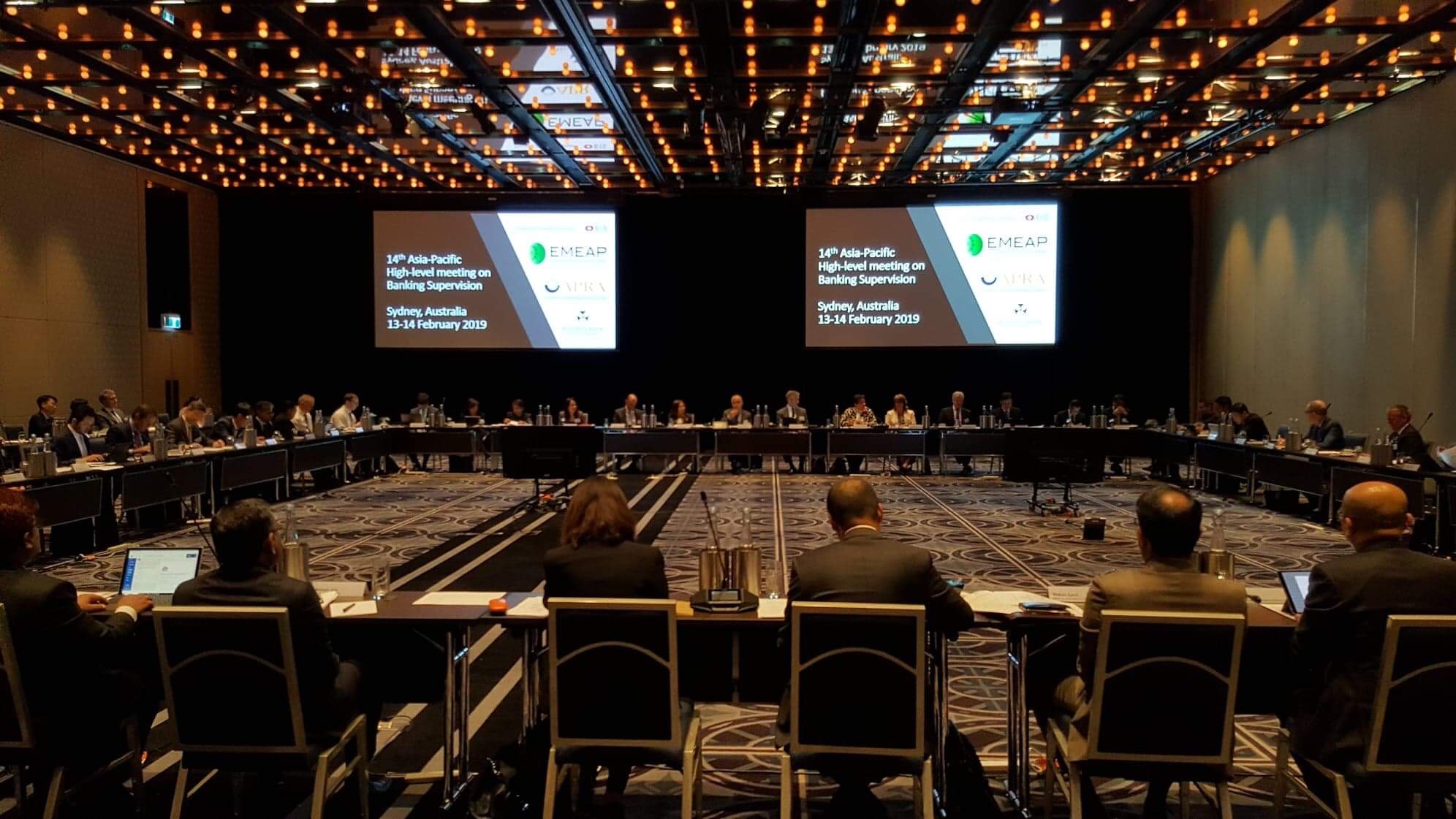Fourteenth Asia-Pacific high-level meeting on banking supervision
Sydney, Australia, 13-14 February 2019
With the finalisation of the Basel III reforms, senior banking supervisors from Asia-Pacific, together with representatives from the private sector, met to discuss current and prospective risk management and supervisory challenges in the post-crisis era.
The implementation challenges of banks and supervisors featured prominently in discussions during the 14th High-level Meeting on Banking Supervision. The meeting was co-hosted by the Reserve Bank of Australia (RBA) and the Australian Prudential Regulation Authority (APRA), and was jointly organised by the Basel Committee on Banking Supervision (BCBS), the Financial Stability Institute (FSI) of the Bank for International Settlements (BIS) and the Executives' Meeting of East Asia-Pacific Central Banks Working Group on Banking Supervision (EMEAP WGBS).
Participants took stock of the economic, political and technological context in which banks and supervisors operate and exchanged views on the potential risks to financial stability. These risks mainly arise due to an extended financial cycle, increased corporate and household indebtedness, and elevated asset prices.

Interest rates are low and liquidity is still abundant and cheap, but these conditions will not last forever; there is the risk of a snapback in markets. At the same time, technological progress might change the business of banking and the structure of the sector. This could be an opportunity; but it may also be a risk if banks fail to adapt- what distinguishes a good bank from a bad bank is how it deals with risk.
Against the backdrop of heightened geopolitical risks and volatile financial market conditions, private sector participants discussed their key risk management priorities, such as placing greater emphasis on non-financial risks (eg cyber, anti-money laundering) while continuing to keep an eye on traditional risks such as credit, market and liquidity risks. At the same time, prudential authorities explored how their supervisory frameworks have evolved since the global financial crisis. Participants discussed whether their methodologies under Pillar 2 of the Basel framework have kept pace with the increased scope and complexity of risks being assessed during the supervisory review process, including assessments related to conduct and culture.

The quality of management and the risk culture that pervades an institution can't be prescribed. That is why supervision -examining whether prudential policy is translating into prudential practice - is so important. Effective supervision is absolutely crucial to making sure the regulatory regime achieves its purpose.
The programme concluded with an exchange of views on the various ways in which technology in financial services has heightened cyber-risks and associated supervisory review challenges on the one hand, but on the other, can be utilised to enhance day-to-day supervisory activities.

